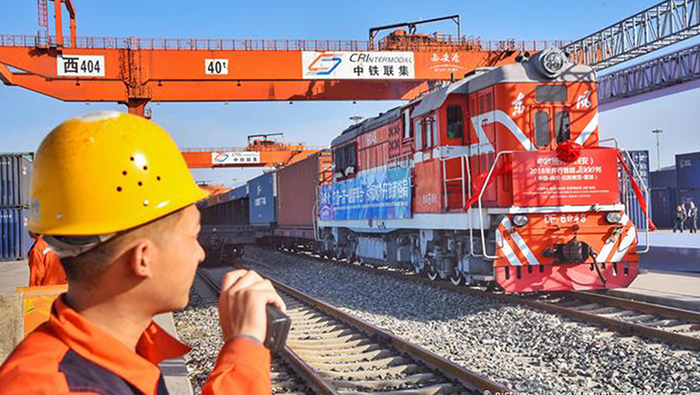
The coronavirus pandemic, which began in China and has sickened over 2 million people globally, is threatening to derail one of the country's most ambitious projects yet — the Belt and Road Initiative (BRI) — dealing a major blow to Beijing's aspirations to become a great power.
The outbreak that has claimed more than 140,000 lives worldwide is prompting delays and disruptions at BRI projects which rely heavily on Chinese labour and supplies, as lockdowns and other sweeping measures to contain the virus prevent workers and supplies from reaching building sites.
Projects worth billions have been hit in Indonesia, Cambodia, Malaysia, Sri Lanka and Pakistan.
Beijing's global ambitions could be further hurt by domestic economic troubles being stirred by the pandemic, which are likely to limit the ability of Chinese financial institutions to splurge on overseas projects as they weigh between spending on domestic health and economic recovery and making loans abroad, said a report by New York-based consultancy Rhodium Group.
Chinese lenders' appetite for outbound lending could also be limited by an "avalanche of [debt] renegotiation" that appears imminent amid the COVID-19 economic shock, it added.
The coronavirus is the latest setback to China's colossal Belt and Road Initiative — often described as a 21st century Silk Road — a gargantuan global infrastructure development project mostly backed by Beijing. Even before the outbreak, the ambitious project was reeling from slowing economic growth in China, criticism from some recipient countries who flagged high project costs, and accusations of predatory loan practices.
"China will not be making the enormous loans that we have seen it make in the past for example in a big rail project, a big port project, or a huge dam project," Agatha Kratz, the lead author of the report, told DW.
"The Chinese banks facing turmoil at home might not have as much liquidity to make huge new loans to developing countries. Besides, they might be criticised in Chinese public opinion for diverting very important resources from the domestic market to foreign markets."
To be clear, Chinese banks had begun slowing lending to BRI projects well before the current crisis as Beijing sought to improve its lending practices amid global criticism. The outbreak is only expected to accelerate the trend.
"One out of five dollars that China has lent were already potentially in trouble. But if you add to that COVID, there's going to be a huge realisation that lending patterns and lending quality must improve," Kratz said.